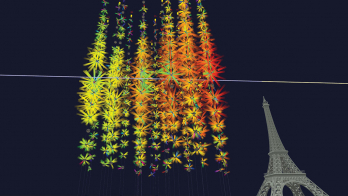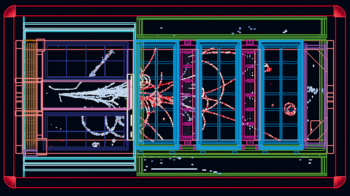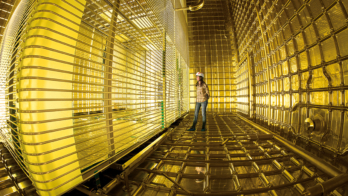In normal beta decay, a nuclear neutron transforms into a proton by emitting a neutrino. A far more exotic possibility is two successive beta decays, in which the neutrino emitted in the first decay would be absorbed by the second decay. The resulting isotope would have two more protons, and no neutrinos would emerge. This can only happen if the neutrino and its antiparticle are indistinguishable from one another (a Majorana particle), as opposed to a conventional Dirac neutrino, whose particle and antiparticle are distinct.
Using an 11.5 kg sample of germanium-76, in the Gran Sasso Laboratory, the Heidelberg-Moscow search has now established that neutrinoless double beta decay, if it happens at all, does so with a lifetime of at least 1025years: a world record. The corresponding effective Majorana neutrino mass (a superposition of the different neutrino mass eigenstates) has to be less than 0.2 eV.
This complements information obtained from solar and atmospheric neutrino oscillation experiments, which determine differences in neutrino mass eigenstates. The new mass limit has implications for the neutrino mass matrix, and for cosmology in the Majorana neutrino scenario. In addition to limits on the neutrino mass, the experiment places limits on other new physics effects.
A full report will appear in a forthcoming issue of CERN Courier.





